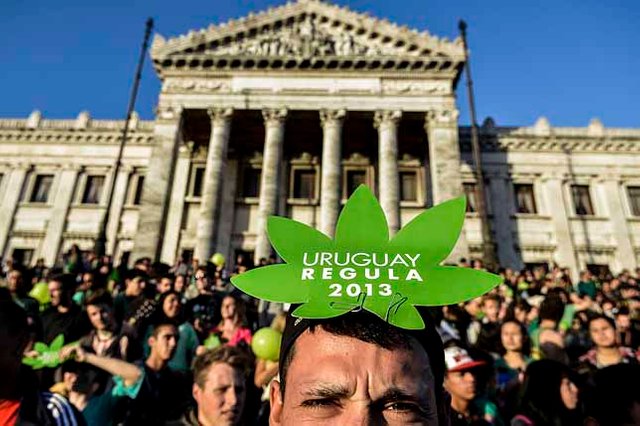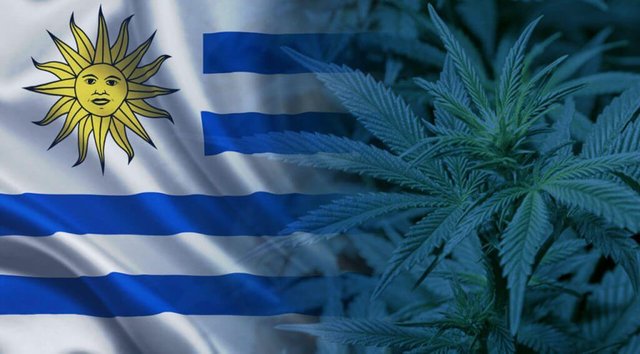What is Uruguay’s history with marijuana, how did this law come to fruition and what have been the benefits or repercussions since its passing?

Uruguay has always been a very liberal country in regards to narcotics, and prior to 1974, no law was in place to make the personal possession of drugs, criminally punishable, until a law was passed to provide a judge with the power to decide if the possession was personal or for distribution. When Jose Mujica, known for being the President who donated 90% of his wages to the needy, was elected as the President of Uruguay, he made his intent known, to legalize marijuana. The underlying reasons were to assist with health problems, and battle drug related crime by controlling the growing, importing and mainly the distribution of cannabis. This would in turn lower the profit organized crime rings would gain by trafficking the plant, as well as other drug related criminal activity.
In regards to growing, farmers are granted professional licenses in order to produce the plant on a large scale, while for personal use people are able to have up to six plants. The government has also allowed growers clubs which are state controlled dispensaries in which each club is permitted to grow up to, but not exceeding, 99 plants, and recently in 2017, certain registered pharmacies have been allowed to commercially sell marijuana.
An initial quota of 880 pounds (400 KG) of reefer will be distributed at first, but as that begins to dry up, plenty more skunk will be brought in to take its place. Mary Jane must be sold at the government fixed price of US$1.30 per gram, a pittance compared to what it used to fetch on the black market (US$5 - US$8).
Customers looking to buy some legal sticky-icky must be over 18, Uruguayan nationals and join a government register. Sales are restricted to 5 grams of roach per transaction, with a maximum 40 grams to be sold per customer per month. Other than that, Uruguayans are free to take hits from the bong as they please.
Aside from freeing up the country’s legal and prison system, Uruguayan lawmakers see legalization as being beneficial to national health. Legal weed will “guarantee the quality and the purity of the product”, said Juan Roballo, the head of the National Drug Board. It also serves to undercut the black market, reduce organized crime and increase tax revenue. “This is not to promote it, but to compete with the informal market,” Roballo said.

My personal opinion about this topic (As an Uruguayan who lives in Uruguay) is that, the legalization process was a great first step. But, as the months goes by I don't see many people buying and being happy about the quality of the product being distributed in the pharmacys. And, there are other disadventages: First of all, you have to register and deliver your personal information (Bussiness can search if you are on the list of consumers). Second, you can buy a limitted amount and can't really choose the variety of weed you would like, there's only two options: Indica and Sativa. Third, the offer is not corralated to te deman, somethimes you have to wait for the arrival of the product various weeks. Despite of this problems Uruguay it's being more open to the new trendings world, while it's analizing new Marijuana related projects that can change the game in South America! Follow me for the next stroy.
See you!
Thanks for reading the article,
Juan Lans.